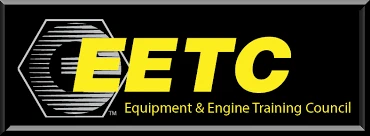
Archive for September 2020Wired! (Battery Cable Service)Posted September 20, 2020 7:26 AMColder weather brings out the worst in a vehicle's battery. On a very cold day, you may have experienced that your engine cranks slowly when starting. But while it may be the battery itself, it may also be the parts that transfer the power to other the other electrical components, the battery cables. After all, you have to have some way to get the current out of the battery and out to where it needs to go. Battery cables have a couple of enemies: corrosion and age. You may have looked under the hood and noticed a light-colored powder or crust around the terminals. That's what happens when acids corrode the ends of the battery terminals. Corrosion inhibits the connection and may reduce the amount of power getting to the electrical accessories to the point where they are not working correctly, if at all. Here are some symptoms of problems with your battery cables. You might notice a clicking sound when you turn the key, some of your vehicle's electrical parts (like the sound system or the horn) don't work or, in some cases, the vehicle won't start at all. When you take your vehicle to a repair facility, the technician will use instruments to check voltages to see how much current is getting to what location. That includes a starter draw test during which the battery's voltage is checked when the starter is cranked. The technician will also visually inspect the cables and the charging system. To make sure the alternator is putting out the right voltage, the technician will measure that as well. If the problem is found to be the battery cable assembly, the entire set may have to be replaced. Sometimes they can be repaired. During the colder months, it's vital that your vehicle has the proper power going to its electrical components. Having a vehicle that won't start or run smoothly is not something you want to battle with when you're already up against challenging weather. Keep your electrons flowing… and your vehicle moving.
A Honking Big Jam (Stuck Horn)Posted September 13, 2020 7:04 AMAt one time or another, most drivers honk their horn at someone who might be texting at a stoplight or not paying attention when they're driving. But what happens when you tap on your horn and all of a sudden it won't quit? Everyone's looking at you like you're an angry jerk and all you want to do is turn it off! It helps to know the basics of what's happening when you honk your horn. There's a switch in the steering wheel, of course, and when you press on it, it sends power to a relay which then energizes the horn. Bingo. Sound. When the horn sticks on, one of these parts or the wiring has developed a problem. With the ear-splitting noise inside your cabin, it may be hard to keep your cool, but do your best to stay calm. Try pushing the horn several times; it may un-stick the switch if you're lucky. If not, there are a couple of things you can try. First, if you can, pull your vehicle off the road and into a spot where you're not disrupting traffic. If you feel comfortable rummaging around in your vehicle's fuse box, you might be able to pull the fuse that manages the circuit for your horn system. A hint: the fuse boxes sometimes have a label inside showing which fuse goes to which part of the vehicle. Find the fuse that goes to the horn and pull it out (sometimes there's a fuse-pulling tool inside the fuse box). But many people don't feel like tackling that. Yes, you can drive over to a service facility with the horn blaring (not the best idea). Or call your service facility and see if they might be able to send someone over to where you are so they can shut off the horn. At the shop, a technician can check wiring, switches, relays and other components to find out what's wrong. This is something that should be left to a professional for a couple of reasons. First, repairs around the steering wheel can involve airbags. Second, some horn components may be part of a vehicle's alarm system. The bad news is that your horn may not give you any warning before it starts blaring uncontrollably. But the good news is that a horn doesn't malfunction all that often, and now you have a plan if it does. Steve & Stacy's Servicenter Start Me Up (Ignition Systems)Posted September 6, 2020 8:54 AMWhen you start up your gasoline engine car, you may not know that it's using the same ignition principles as it has for decades. You have spark plugs that require enough power so a spark can jump across a gap at its tip. Years ago, a vehicle's 12-volt system had to produce 15,000-25,000 volts to do that, so engineers came up with something called an ignition coil that bumps up the voltage. It also has to be done at just the right interval called timing. The first systems had a distributor, a mechanical device with a rotating disc that switched the power to the ignition coil on and off. That higher voltage then was sent to the spark plugs at the correct time interval. But the mechanical "points" had to be replaced and adjusted every 12,000 miles/20,000 kilometers. Engineers later replaced the switching mechanism with solid state ones, but they still needed replacement after 120,000 miles/200,000 kilometers. The next evolution came in the 80's when the distributor was replaced with a couple of sensors which talked to a computer. This "DIS" (distributor-less automotive ignition system) was a big advance. Plus, it didn't use just one ignition coil for all the cylinders. It had coil "packs" that each provided spark to two cylinders. That way, the voltage could be boosted even higher, to 30,000 volts, which helped engines be able to ignite a leaner fuel/air mixture. Recently have come even more improvements. Now instead of coil packs, there's a coil that's attached to each spark plug. No more spark plug wires means less maintenance. Plus, a stronger, hotter spark of 50,000 volts can make an engine more reliable, increase fuel economy and reduce emissions. No matter what ignition system your vehicle uses, your vehicle service facility has a staff of technicians trained to work on the latest technology. Make sure to have your vehicle maintained regularly so you can take full advantage of these modern engineering marvels. Steve & Stacy's Servicenter | ||
SearchArchiveApril 2016 (16)May 2016 (5) June 2016 (4) July 2016 (5) August 2016 (4) September 2016 (4) October 2016 (5) November 2016 (4) December 2016 (4) January 2017 (5) February 2017 (4) March 2017 (4) April 2017 (3) May 2017 (4) June 2017 (5) July 2017 (5) August 2017 (3) September 2017 (3) October 2017 (5) November 2017 (4) December 2017 (3) January 2018 (5) February 2018 (4) March 2018 (4) April 2018 (5) May 2018 (4) June 2018 (4) July 2018 (5) August 2018 (4) September 2018 (5) October 2018 (4) November 2018 (4) December 2018 (5) January 2019 (5) February 2019 (4) March 2019 (4) April 2019 (4) May 2019 (4) June 2019 (5) July 2019 (4) August 2019 (4) September 2019 (5) October 2019 (4) November 2019 (4) December 2019 (5) January 2020 (5) February 2020 (4) March 2020 (5) April 2020 (4) May 2020 (5) June 2020 (4) July 2020 (4) August 2020 (5) September 2020 (3) October 2020 (4) November 2020 (5) December 2020 (4) January 2021 (6) February 2021 (4) March 2021 (4) April 2021 (4) May 2021 (5) June 2021 (4) July 2021 (4) August 2021 (5) September 2021 (4) October 2021 (5) November 2021 (3) December 2021 (4) January 2022 (6) February 2022 (4) March 2022 (4) April 2022 (4) May 2022 (5) June 2022 (4) July 2022 (5) August 2022 (4) September 2022 (4) October 2022 (5) November 2022 (4) December 2022 (4) January 2023 (5) February 2023 (4) March 2023 (4) April 2023 (5) May 2023 (4) June 2023 (4) July 2023 (5) August 2023 (4) September 2023 (4) October 2023 (5) November 2023 (4) December 2023 (5) January 2024 (5) February 2024 (4) March 2024 (5) April 2024 (4) May 2024 (4) June 2024 (5) July 2024 (4) August 2024 (4) September 2024 (5) October 2024 (4) November 2024 (4) December 2024 (5) January 2025 (4) February 2025 (4) March 2025 (5) April 2025 (4) May 2025 (4) June 2025 (5) July 2025 (1) | CategoriesMaintenance (8)Service Intervals (2)Service Standards (2)Steering (6)Keys to a long lasting vehicle (2)Air Conditioning (7)Fuel Economy (4)Fuel System (5)Battery (9)Alignment (7)What Customers Should Know (67)Transmission (3)Brakes (14)Dashboard (1)Headlamps (4)Auto Safety (4)Safety (2)Fluids (6)Alternator (5)Oil Change (8)Fuel Saving Tip: Slow Down (2)Tires and Wheels (4)Cooling System (7)Drive Train (4)Winter Prep (2)Inspection (2)Windshield Wipers (2)Check Engine Light (3)Tires (10)Timing Belt (2)Automotive News (1)Exhaust (9)Winter Tires (1)Older Vehicles (1)Water Pump (2)Wheel Bearings (1)Suspension (2)Transfer Case Service (1)Spark Plugs (2)TPMS (3)Shocks & Struts (1)Brake Service (4)Tire Rotation and Balancing (2)Differential Service (1)Serpentine Belt (1)Shocks and Struts (2)Fuel Filter (1)Engine Air Filter (1)Trip Inspection (1) | |
What our clients are saying about us
We have established longterm and stable partnerships with various clients thanks to our excellence in solving their automotive needs!
Awesome staff! They are so kind and helpful and went out of their way to help me out when I was in a pinch nearby.

I am a repeat customer - went to get my oil changed and they reminded me that I was not yet time! I very much appreciate the honesty and looking out for me!





















